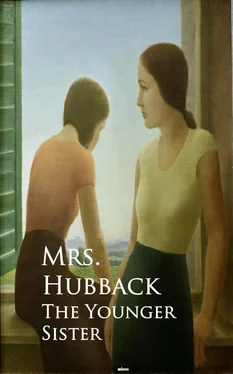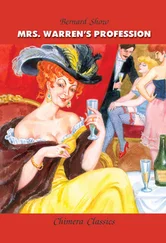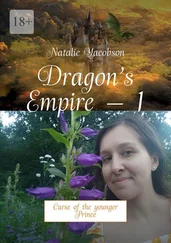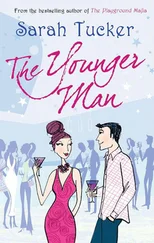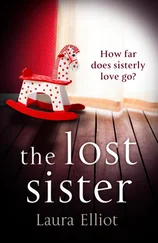"You will find the Edwardses very agreeable people," said Elizabeth to her, as they drove slowly from the parsonage along the lane, now splashy and deep with November mud. "I assure you, they live in very good style; the door will be opened by a man-servant, and their dinner is sure to be handsome."
"What sort of person is Mr. Edwards?" enquired Emma, who began to have a little palpitation, at the idea of being left quite amongst strangers.
"Oh, you need not mind him," said her sister, "you will see him at dinner, and he will ask you to take wine; and he will eat a great many filberts after dinner, and offer you some gingerbread; but you need not take it if you don't like; Mary Edwards makes it on purpose for her father, who eats it every day. Mr. Edwards will play at cards all the evening at the ball, and if he wins you will stay late, and he will be quite good tempered; but if he has ill-luck, he will hurry you home very early. However you will be sure of some comfortable soup afterwards; and if he is cross, you had better say nothing, and go to bed as soon as you can!"
"I will be sure and remember it," observed Emma.
"As the party from Osborne Castle are expected," continued Elizabeth, "I dare say it will be a very good ball; I am sure you will be very much admired; how I should like to be there myself!"
"Well, Elizabeth, I am sure you shall go instead of me; it would be much better, as
you
know everybody, and
I
am quite a stranger. I could send John over with your things if you staid in my place; I should not be at all afraid of driving this steady old thing back to Winston by myself; and as to our father, I dare say I could amuse him. Do you know I really think you had better settle it so."
"My dearest Emma," cried Elizabeth warmly, "how excessively good-natured of you; but I could not do such a thing for the world, though I shall always remember your making the offer. Keep you from your first ball indeed; when you are so sure of being so much admired! oh no, it is only fit that you should have your turn of pleasure, and I would not hinder you."
"But indeed, dear Elizabeth, I should not care about it, I am sure, in comparison with you, so you need not mind that!"
"But indeed I could not think of such a thing; and besides, my principal wish would be to see
you
there. I am sure you will enjoy it. Offer to give up a ball at nineteen, and your first ball too; I wonder when Pen or Margaret would think of such a thing: I am sure
I
should never have forgiven any one who kept
me
from a ball at your age. But if my father seems pretty well, and can spare me, I really think I would wrap myself up, and make John drive me over to join you there; I could easily do that you know."
"What! drive over in this pony-chaise, Elizabeth?" said Emma, much surprised.
"Yes, why not! I suppose
you
have been so used to a coach, as to think that impossible: but, my dear Emma, I am afraid you are too refined to be happy with us!"
"Too refined!" said Emma, "what do you mean?"
"Why that is just an example,—you are not used to make shifts, and be put about; and are shocked at such an idea; it will not answer, I assure you, it will not make you happy."
"I am sorry you see anything to find fault with, Elizabeth; I did not know I was refined; it is natural to me; I only think and feel like the people I have been used to," and she sighed at the thought of her uncle and aunt.
"I dare say that is very true; but it will not do here; how Pen would laugh at you; you have no idea how she ridicules everything not just like herself. So you had better get over it as fast as you can!"
"I will do my best," sighed Emma.
"I should not wonder if Tom Musgrove were to dance with you, he generally notices every new girl, especially if they are pretty. But I should not like
you
to be caught by him."
"Who is he? I never heard you mention him."
"Oh, he is a young man of independent property who lives near here; and one of our pleasantest young men too; but I must warn you against him, Emma; he has a way of paying attentions to young girls, and he is so pleasant they all like him; so when he has made one desperately in love, he flies off to somebody else, and does not mind what hearts he breaks."
"What a despicable character," cried Emma warmly, "you need not fear my liking him after that."
"I assure you," returned Miss Watson, "he is
very
agreeable, and I defy any girl to whom he tries to recommend himself, not to find him agreeable. Almost every girl in this neighbourhood except myself, has been desperately in love with him at one time or other. Margaret was his last object, but though he has not paid her much attention for these six months, she is perfectly persuaded that he is as much attached to her as she is to him; and this is the second time since last spring that she has gone to stay a month at Croydon, in the hopes of his following and proposing to her. He never will however."
"And how came you to escape?" enquired Emma with interest.
"Really I can hardly tell; I think at first I was so taken up with the affair with Purvis, and my disappointment there, that I thought little about Tom Musgrove."
"To whom do you allude?" said Emma, "I do not at all understand you?"
"Did you never hear about that!" said Elizabeth with surprise, "perhaps you were thought too young to be trusted; but I will tell you now. I was engaged to him; he was a very nice young man, and it would have been a very good match for me—and what do you think prevented it?"
"I am anxious to know, Elizabeth, but cannot guess!"
"It was Penelope—yes, it was really Pen, she said; and did things which caused the rupture—and Purvis left me!"
Emma looked much shocked.
"I can hardly believe it: your own sister; it seems quite impossible that any girl could be guilty of such treachery: what could be her motive!"
"Oh, she wanted to marry him herself—Pen would do anything in the world to be married—that is what she is gone to Chichester about now—did you not know that?"
"Gone about?" repeated Emma looking puzzled—"what do you mean, how can she be gone to be married?"
"Don't you know that," again exclaimed Elizabeth, "though, to be sure, I do not see how you should, as nobody could have told you. I believe there is some old doctor there whom she is bent upon marrying. He is quite an old man, asthmatic, and all sorts of bad things: the friend she is staying with, however, thinks it would be a very good match for her, as he would make her a handsome settlement, and could not live long. I am not at all in her confidence, however, and have only a general notion of how things go on; I just hear what she tells Margaret, or what she lets out accidentally. I believe they think everything going on very prosperously now, and, perhaps, she may soon be married to him. I am sure I hope she will."
"Oh, Elizabeth, do you think she could be happy with an old asthmatic man? and marrying from such mercenary motives," cried Emma, half horrified.
"Really I do not know," replied Miss Watson quietly, "whether
she
would be happier or not; but I am sure
we
should. I wish with all my heart Pen and Margaret both were married; for Margaret is so peevish, there is no peace unless one lets her have her own way; and Penelope would rather have quarrelling going on than nothing. Now I think you and I could live together very comfortably, Emma; and really I would rather the others were married than myself."
"Yes, I can easily believe that," returned Emma, "having once loved, and been disappointed, I can understand your not caring about any one else."
"I do not know that
that
would make any difference," returned Miss Watson. "Poor Purvis, I certainly was very sorry to lose him; and really suffered very much at the time; but it would be a very pleasant thing to be well married; and, I believe, scarce any body marries their first love."
Читать дальше
